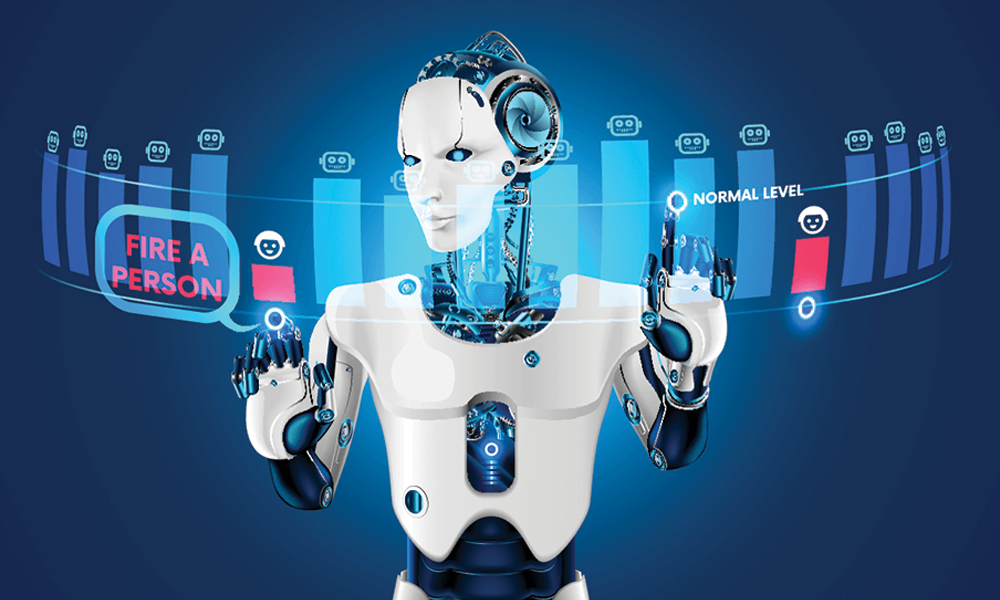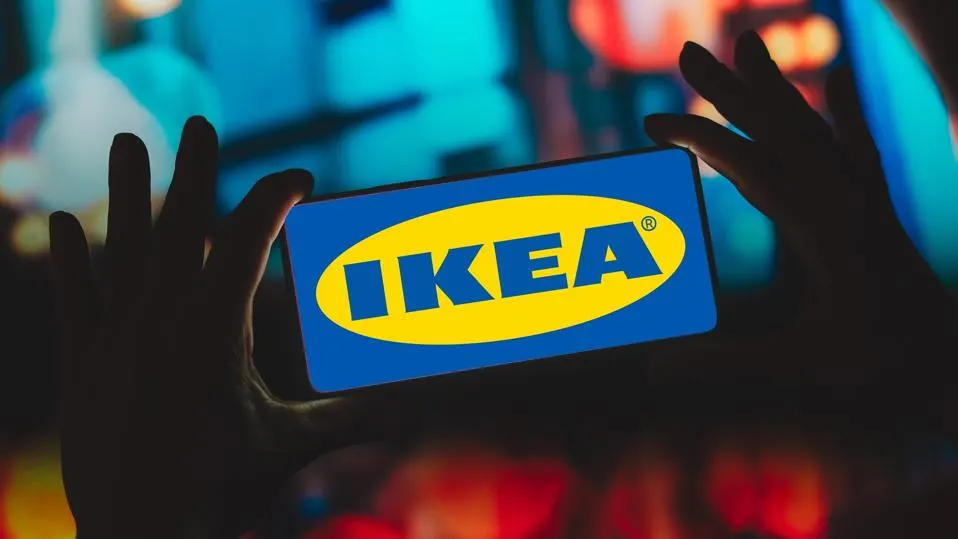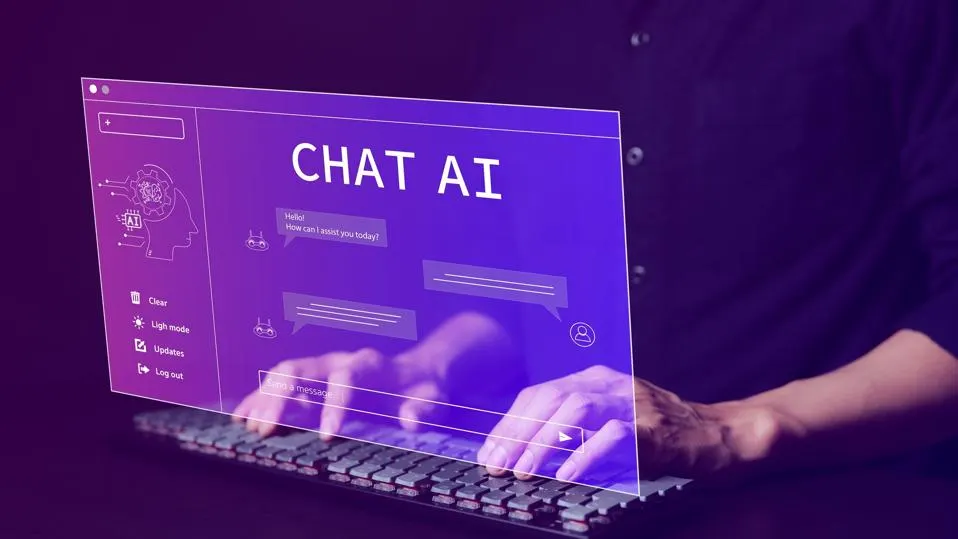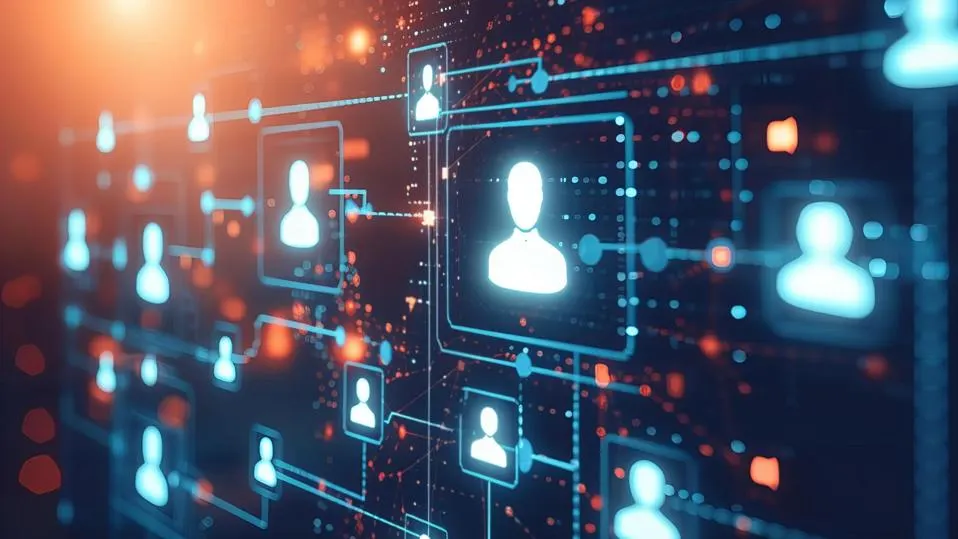If 1 In 5 Jobs Is ‘Displaced’ Due To Automation, What Does That Mean For HR?
2 July 2021
Robots are Coming For Our Jobs,’ yelled the Huffington Post. ‘Robots will destroy our jobs – and we’re not ready for it,’ The Guardian calmly announced. And according to the Daily Mail, ‘Robots taking human jobs is causing a “hellish dystopia”’.

These headlines may seem over the top, but, like the scariest nightmares, they’re rooted in reality. From factory line jobs to professions like accounting and medicine, artificial intelligence (AI) technologies mean that more and more tasks can now be automated and completed by machines or algorithms.
A recent report by think tank Centre for Cities estimates that 1 in 5, or 3.6 million, British jobs will probably be ‘displaced’ by 2030 due to automation and globalisation. According to the report, occupations that comprise largely routine tasks are at a higher risk of decline, and the sectors most at risk are warehousing, customer service and retail.
So there’s no doubt that automation will affect human jobs. But is it all doom and gloom? And how will this increasing automation affect the HR teams of the future?
Automation = opportunities
It sounds a dismal statistic, doesn’t it, 1 in 5 jobs? However, the Centre for Cities paints a surprisingly positive picture, saying that, despite the probability of job losses, there will be an overall increase in jobs by 2030. In particular, jobs that require cognitive and interpersonal skills are set to grow.
It’s the use of the word ‘displaced’ that I find most telling. Rather than us all being rendered unemployed by robots, the jobs us humans do will shift, evolve and change. The report points out that Britain’s cities have been coping with automation and globalisation for more than 100 years and almost all of our cities have seen the number of jobs grow during that period.
The emergence of new sectors – as a direct result of automation, technology, artificial intelligence, and so on – will lead to new roles that currently don’t exist. Therefore, new jobs, job we can’t even imagine yet, will arise to replace those that are lost to technology. (If you think this is overly optimistic, remember that there were no such things as social media managers or app developers 15 years ago.) ‘Automation and globalisation will boost jobs in British cities over the coming decades,’ Centre for Cities says.
How will HR change?
In its annual HR survey, recruitment firm Harvey Nash concluded that AI and automation will have a major impact on HR over the next five years. The survey found that 15% of HR leaders were already affected by AI and automation, while 40% think it will impact them in the next two to five years. Looking further ahead, an Oxford University study concluded that, by 2035, HR administrative jobs had a 90% chance of being automated.
What does this automation mean in practice? One good example is virtual helpdesk agents – chatbots – that could answer simple employee questions such as ‘When is the company closed over the Christmas break?’ or ‘How much of my annual leave have I used already this year?’
Chatbots are becoming increasingly common in our everyday lives. Many large brands are already using chatbots to interact with customers. (eBay’s ShopBot, for example, helps shoppers find and buy eBay items from within Facebook’s Messenger app.) So, as we become more and more used to interacting with chatbots in everyday life, we can expect to see greater use of chatbots in the workplace. Plus, as our workplaces become more geographically dispersed, and the number of remote workers continues to rise, chatbots can fulfil a vital need for employees who don’t have easy access to HR colleagues.
AI technology is now so sophisticated that it can respond to natural, spoken language, rather than typed questions, and even detect the underlying sentiment behind the words themselves. Call centres, for example, are using this technology to analyse whether a caller is satisfied, frustrated or angry during the course of their call.
Intelligent assistants can also play a role in talent acquisition, from scheduling interviews to supporting (or even making) decisions about applicants. Talla is one example of a chatbot that’s designed to serve as a real-time advisor to HR professionals as they source new hires. Talla can provide a set of interview questions based upon the role being recruited for and even conduct a Net Promoter Score survey following the recruitment process.
So, it’s clear that HR will be affected by automation over the next few years. However, just as with the wider jobs market, this should be seen as a positive development. Automating the simpler, administrative-type tasks frees up HR professionals to focus on more important tasks that deliver greater value to the business – tasks that robots and algorithms can’t complete.
HR’s role in preparing people and businesses for what lies ahead
One critical point from the Centre for Cities report is that greater investment is needed to help workers adapt to the changing nature of work. People and businesses need help preparing for the changes that are coming, and I see HR as being central to fulfilling this need.
HR professionals must therefore develop a thorough understanding of the issues around automation if they’re to be able to answer key questions like, ‘What type of people does the business need to work with these automated systems?’ or ‘What skills should I be developing to future-proof my career?’
With the wealth of data available to modern HR teams, HR is ideally placed to answer such questions and support both the organisation and its people through the coming changes.
Read more about how data, AI and automation are transforming HR in my new book Data-Driven HR. It’s packed with real-life examples and practical ways HR teams can deliver maximum value in our increasingly data-driven world.
Related Articles
Responsible AI: Why Privacy Is An Essential Element
Today, people often talk about “responsible” AI use, but what do they really mean?[...]
The Amazing Ways IKEA Is Using Generative AI
Global furniture retailer IKEA has long been at the forefront of tech-driven retail innovation.[...]
Generative AI Is Coming To Your Home Appliances
Across all industries, organizations are rapidly embracing generative AI. Among them, makers of home appliances like fridges and ovens.[...]
Generative AI And The Risk Of Inbreeding
We all understand the concept of inbreeding in human terms – where people who are too genetically similar reproduce, resulting in offspring with deformities.[...]
How Generative AI Will Change The Jobs Of HR Professionals
HR is fundamentally about managing humans – so how will the job change in a future where powerful generative AI tools are everywhere?[...]
Amazon Harnesses Generative AI For Seamless Palm Recognition Shopping Experience
Generative AI may have made headlines for its ability to write text and create art, but its uses extend beyond simply generating content.[...]
Sign up to Stay in Touch!
Bernard Marr is a world-renowned futurist, influencer and thought leader in the fields of business and technology, with a passion for using technology for the good of humanity.
He is a best-selling author of over 20 books, writes a regular column for Forbes and advises and coaches many of the world’s best-known organisations.
He has a combined following of 4 million people across his social media channels and newsletters and was ranked by LinkedIn as one of the top 5 business influencers in the world.
Bernard’s latest book is ‘Generative AI in Practice’.










Social Media